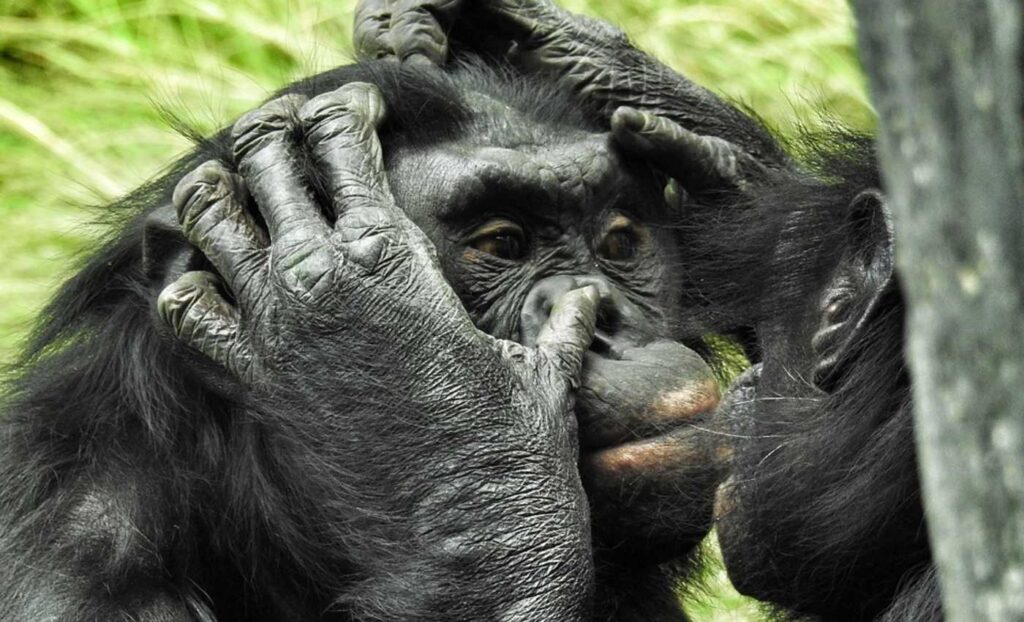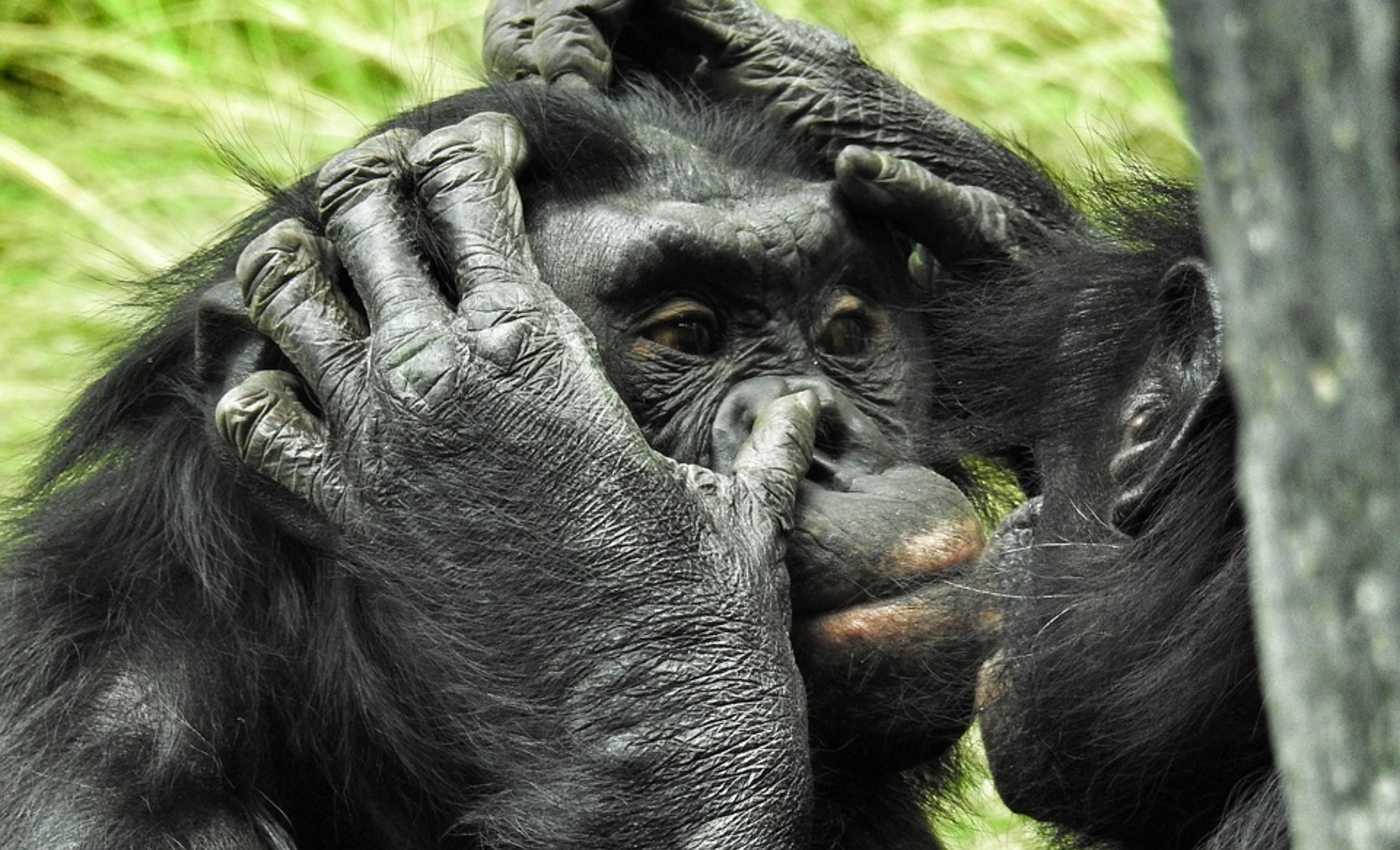New research suggests that among bonobos, giving is seen as good—and they may just have given the trait of generosity to us.

While chimps are hostile and competitive, bonobos, their lesser-studied ape relatives, share about the same amount of DNA as us—and live in the polar opposite society of the blood-and-guts chimp dominance hierarchy.
A recent paper—based on research conducted by Duke University researchers in the Democratic Republic of the Congo—found that given a plate of prized fruit and the decision to eat it all on their own, bonobos preferred to unlock an unrelated bonobo from a room with a locked door in order to share the food.
Later, the researchers found that when the bonobos were in groups of three—composed of a bonobo with food, their friend, and a stranger—the subject with food would generally share with the stranger first, followed by the friend.
While humans can be more like chimps this regard, sometimes perceiving strangers as not even of the same species depending on just how far outside their group the stranger is, this bonobo beneficence of treating strangers before in-group members can be found in certain Asian customs, or in the Roman writings on Germanic Tribes of Northern Europe like the Suebi, of whom, the historian Tacitus wrote:
“The host welcomes his guest with the best meal that his means allow… No distinction is ever made between acquaintance and stranger as far as the right to hospitality is concerned.”
NPR details that the bonobo sanctuary in DRC has produced 75 published studies, as the country is the only place on Earth where bonobos can be found in the wild. Here, just as in the wild, the leader of any social circle is the female. Females keep it that way by banding together to banish aggressive males.
When all is quiet, such as when it’s time to chow down, the hierarchy is enforced through sharing, cooperation, tolerance, and lots and lots of sex, in every capacity imaginable, though usually only for about 13 seconds.
Other similarities include the simple tendency observed in both bonobos and humans to yawn following the observation of another social group member yawning, which was suggested as being derived from empathy.
CHECK OUT: Once Thought to Be Extinct, First Ever Photograph of the Tree-Kangaroo Proves Its Survival
It’s likely humans’ early ancestors acquired many similar strategies, as we now share and cooperate on a massive scale to accomplish things no other species has been able to do— despite the fact that we left behind many of our chimp tendencies.
The research was captured well in a book co-written by the lead author of the first mentioned study, in Survival of the Friendliest: Understanding Our Origins and Rediscovering Our Common Humanity.
GO APE for the Good News—Share This Story With Friends…




















